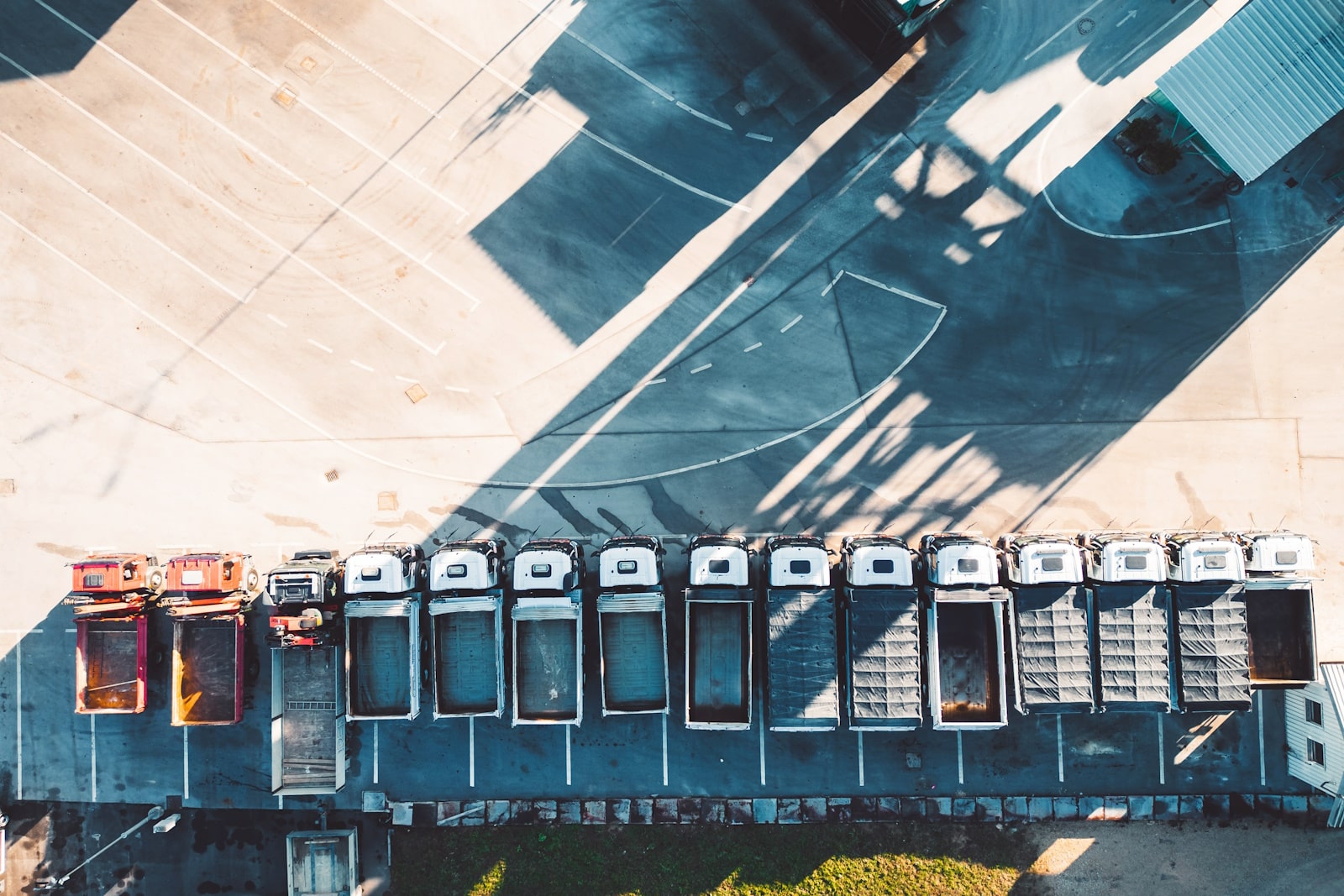Waste Companies & Fleet Management Optimisation
In today’s evolving waste management landscape, waste companies face mounting pressures: escalating fuel prices, environmental regulations, sustainability targets, and operational efficiency demands. Optimising fleet management is now more critical than ever.
Optimised Route Planning: Smarter, Greener Collections
At the heart of efficient operations, route optimisation algorithms power strategic decision-making. By analysing real-time traffic, bin fill levels, and service frequency, these tools chart the most efficient paths—cutting journey times, fuel use, and CO₂ emissions. For waste companies, this translates into reduced driver hours and lower overheads.
Telematics & GPS Tracking: Eyes on the Road
Telematics systems give operators real-time insight into vehicle behaviour, location, speed, and idling. For waste companies, this means tighter operational visibility, proactive performance management, and fewer accidents. Maintenance teams can monitor engine diagnostics remotely, reducing breakdowns. With South African roads and regulatory frameworks such as the National Environmental Management: Waste Act (NEMWA), real-time tracking enhances compliance and accountability across fleets.
Fuel Efficiency Measures: Maximise Each Litre
Beyond routing and telematics, waste companies can boost fuel efficiency with engine tuning, idle-reduction policies, driver coaching, and use of alternative fuels such as biodiesel or LNG. Telematics tools provide actionable fuel-consumption reports, enabling proactive efficiency gains. By integrating these with broader management systems, companies become more agile, lowering emission intensity and operational costs.
Predictive Maintenance: Downtime, Minimised
Predictive and preventive maintenance systems monitor vehicle health using telematics and onboard data. For waste companies, this means alerts before breakdowns, scheduled service intervals, and extended vehicle lifespan. These systems dovetail with the Legal Metrology Act in South Africa, ensuring accurate measurement systems in heavy vehicles, and the Road Traffic Act where vehicle safety is paramount. The result: reduced downtime, better compliance, and stronger return on investment.
Driver Performance Analytics: Better Driving, Lower Cost
Analysing driver behaviour—such as harsh braking, rapid acceleration, and idling—boosts safety and reduces fuel costs. For waste companies, driver scorecards and regular coaching foster eco-friendly driving habits. As fleets are increasingly insured based on risk profiles, better driver behaviour also lowers premiums and aids compliance.
Smart Bin Integration: Data-Driven Collections
Sensor-equipped smart bins detect fill levels in real time, signalling when collection is needed. This eliminates guesswork, reduces unnecessary visits, and has been shown to cut collection frequency by 30–40% in pilot projects. In South African townships, technology-driven bin systems—integrating sensors, apps, and GPS—are already being trialled. For waste companies, this offers cost savings, route efficiency, and improved environmental performance.
Electrification: The Future of Fleet Power
Electrifying fleets is an evolving trend in waste haulage. Electric and hybrid trucks significantly lower noise and manage emissions—key for urban centres and compliance with South Africa’s Greenhouse Gas Emissions targets. The National Waste Management Strategy emphasises circular economy and carbon-neutral goals; EV fleets align with these, offering long-term cost savings as battery and charging infrastructure improve.
Fleet Size & Composition: Data Drives Decisions
Using historical data and projection tools, waste companies can identify the optimal number and type of vehicles for each service area. This prevents overcapacity and ensures sufficient coverage in densely populated areas. This strategic alignment saves upfront investment and daily operational costs.
Compliance Tracking: Stay Ahead of Regulation
Regulatory oversight in South Africa covers vehicle emissions, noise, driver licensing, safety, and hazardous waste handling. Fleet management systems automate compliance by logging driver hours, vehicle checks, and maintenance milestones. This digital proof streamlines auditing and ensures adherence to NEMWA and municipal by-laws.
Cost–Benefit Analysis: Measure the ROI
Before investing in telematics systems, smart bins or EVs, waste companies need clear ROI tools. Many solutions now model ROI based on fuel savings, reduced fleet costs, lower maintenance spend, and compliance benefits. Smart bins alone can save millions of rand annually through fewer routes and less downtime.
Integrated Strategy for Waste Companies
- Pilot – Start small: roll out route optimisation, telematics and smart bins in one urban district.
- Train – Use data from driver analytics to instil fuel-efficient and safe driving habits.
- Scale Maintenance – Leverage predictive tools for timely fleet service.
- Migrate – Explore electrification of light routes, supported by ROI analysis.
- Expand – Gradually broaden scope to full fleet and wider service areas.
At A-Thermal, we combine local insight with advanced fleet management solutions tailored to South Africa’s waste sector. We’ve helped waste companies cut fuel use, enhance safety, and improve service standards. Our pilot projects have yielded measurable savings and environmental benefits.
Contact us to discover how we can support your fleet’s transformation—optimising routes, reducing emissions, ensuring compliance, and future-proofing your operations.







